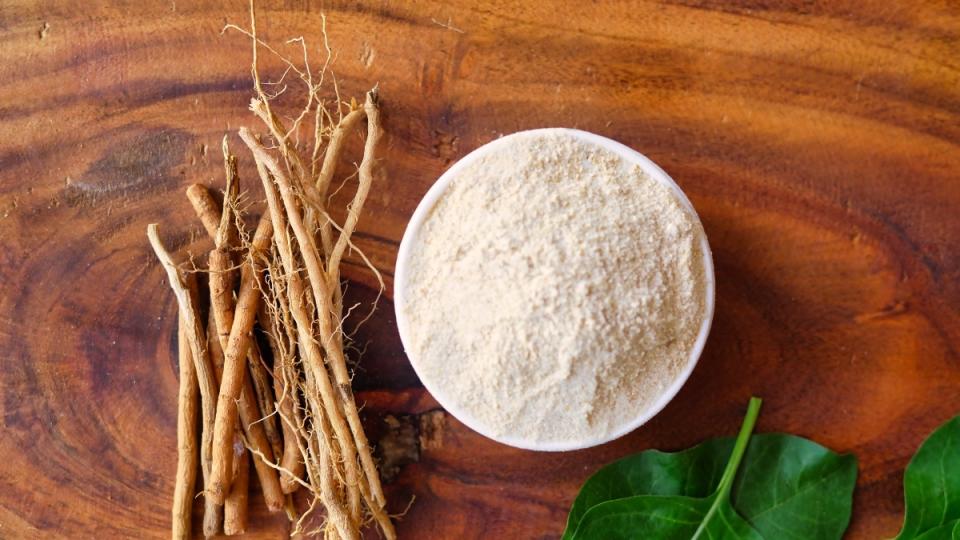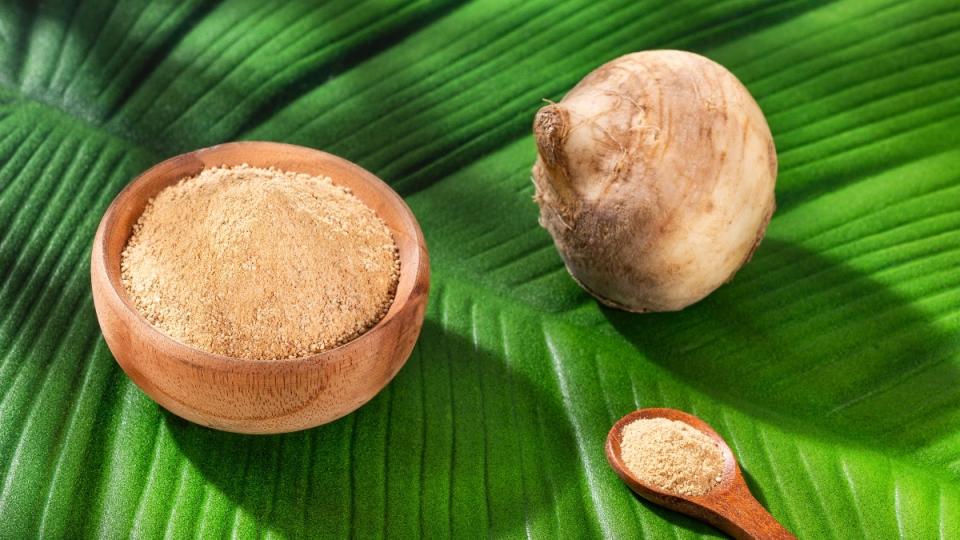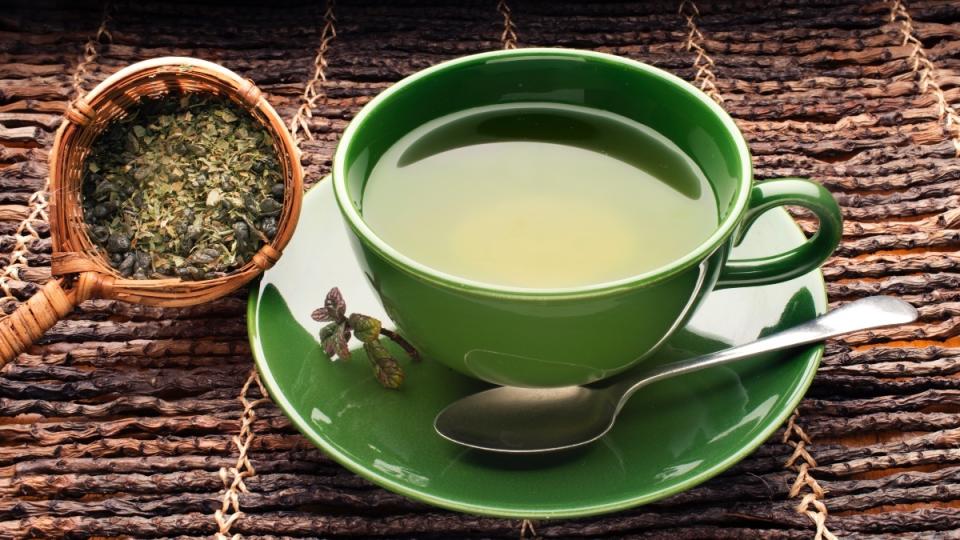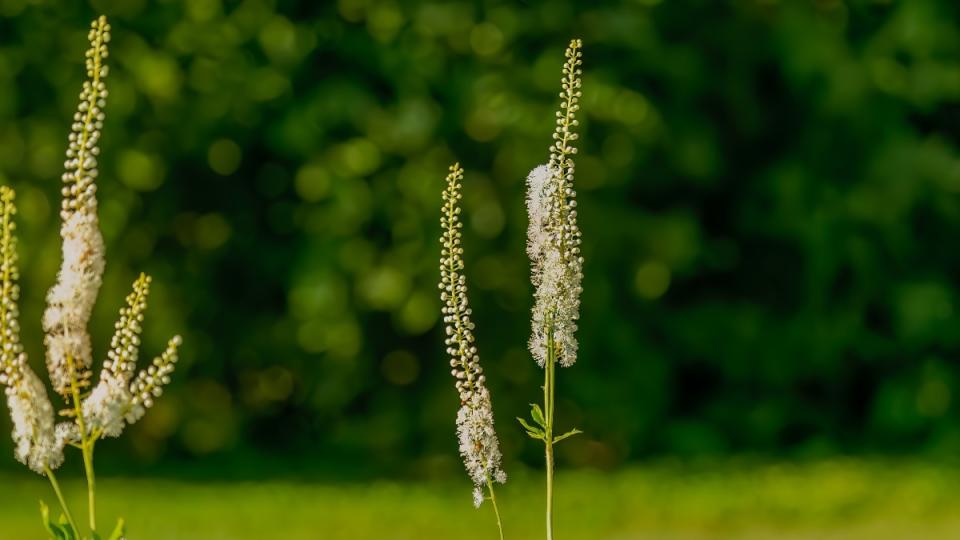MDs Reveal the Best Natural Ways to Ease the Most Bothersome Menopause Symptoms
If you're like us, you're often going about your busy day, then suddenly find yourself overheating and your cheeks flushed. Or maybe you unintentionally snap at your spouse, or struggle to zip your jeans that fit just a few weeks ago. Navigating menopause can mean dealing with disruptive symptoms we've resigned to accept as just "part of the process." But they don't have to be. Here, MDs share 7 natural menopause treatments that work to tame your most bothersome symptoms.
What happens during menopause
Just like the start of your reproductive years, the end of it can be a challenging time. Some 85% of women experience menopause symptoms of various types and intensities. This is linked to changes in estrogen levels that begin in perimenopause, the stage before menopause when hormonal fluctuations start, explains Wendy Warner, MD, a functional medicine gynecologist in Langhorne, Pennsylvania, and co-author of Boosting Your Immunity for Dummies. Crucial for reproductive health, estrogen also plays a critical role in other bodily functions such as maintaining bone strength, regulating cholesterol, supporting brain function and keeping skin elastic. That’s why its fluctuation and eventual decline has such widespread effects, Dr. Warner notes.
“Estrogen is the great fake-out queen,” says Dr. Warner. “If you have lots of other imbalances — like stress and blood sugar imbalances — as long as you have enough estrogen, you're not going to notice it. When you hit menopause and your ovarian estrogen production is declining, you start having hot flashes and night sweats. And that's why a 60-, 70- or 80-year-old woman could still be having night sweats or hot flashes.”
And as Dr. Gersh notes, "one of the problems is that loss of ovarian estrogen leads to many imbalances, such as blood sugar dysregulation. Women can continue to suffer with night sweats and hot flashes for year because the underlying problem of estrogen deficiency has not been addressed."
While hot flashes and night sweats are most common (and can last a decade or more), other perimenopause and menopause symptoms include vaginal dryness, breast tenderness, chills, painful intercourse, mood changes, thinning hair, brain fog and difficulty sleeping, among others.
7 natural menopause treatments that work
The good news: From hot flashes and mood swings to joint pain, these 7 natural menopause treatments work to ease your most bothersome symptoms. Got 'em all? Our experts share their top pick for treating multiple symptoms at once, too.
1. Blue moods or anxiety? Try ashwagandha
“Menopause changes everything for mood,” says Felice Gersh, MD, an OB/GYN in Irvine, California. “When you lose estrogen, you lose its years-long effect on brain receptors.” That’s because cognition and mood are impacted by fluctuating and lower estrogen levels, Dr. Gersh explains.
She says hormonal changes double the risk of anxiety, depression and other mood issues during menopause, especially for those with a history of such conditions. “If you've had prior issues — say you had postpartum depression, PMS, anxiety, depression disorders in the past — your risk goes up fourfold,” she adds.
To keep blues and anxiety at bay, Dr. Gersh recommends ashwagandha, an herb renowned for its ability to tame tension. It works by targeting the hypothalamus-pituitary-adrenal (HPA) axis that controls stress hormones like cortisol. Elevated cortisol levels can exacerbate mood swings, Dr. Gersh says. But reducing stress through ashwagandha helps keep your spirits up and stress down.
“I call it the great leveler of mood,” says Dr. Gersh, author of Menopause: 50 Things You Need to Know. “If you're really stressed and wired, it helps to calm you down. If you're dragging, low in energy and mood, it helps to bring you up.”
A study in the Indian Journal of Psychological Medicine found ashwagandha improves resistance to stress. And a separate study in the Indian Journal of Psychological Medicine found taking 300 mg of ashwagandha daily lowers cortisol levels and reduces anxious feelings by as much as 44%. One to try: Tribe Organics Organic Ashwagandha (Buy from Amazon, $28.47). (Click through for more supplements to reduce cortisol.)

2. Hot flashes? Try edamame
One minute you're cool and comfortable, the next you're overcome with a flush of heat and start sweating. Hot flashes are more than just bothersome, they can be downright embarrassing. Fortunately, a natural solution lies in soy-based foods like edamame. Soy is rich in plant compounds called phytoestrogens that mimic estrogen. “I call phytoestrogens nature's special gift to women,” says Dr. Gersh. “They bind to estrogen receptors, creating an effect similar to estrogen."
A study in Obstetrics and Gynecology found that women who ate more soy protein had significantly fewer and less intense hot flashes. And research in the journal Menopause suggests enjoying a handful of crispy dry roasted edamame or a cup of miso soup daily tamps down hot flashes up to 84%.
Another smart pick: Flaxseeds, which contains phytoestrogens in addition to good-for-you omega-3 fatty acids and fiber. Dr. Gersh explains that many women in the throes of menopause are often advised to eat flaxseeds daily without knowing why. “It's because of the phytoestrogens,” she says. "Just eating a variety of fruits and vegetables and then focusing on a cup of organic soybeans every day and a couple of tablespoons of flaxseed can, over about 12 weeks, dramatically lower the tide on night sweats and hot flashes." (Click through to learn how sweet potatoes tame menopause symptoms like hot flashes, too.)
3. Hot flashes and low libido? Try maca
Maca root, a Peruvian superfood, is another powerhouse in managing hot flashes due to its hormone-regulating abilities. "It's my first choice for hot flashes, alongside lifestyle changes," says Dr. Warner, who recommends Femmenessence MacaPause capsules (Buy from Femmenessence, $36.99).
This is an especially smart pick for women who are also experiencing a decline in desire. Why? Supplementing with maca daily significantly boosted sexual desire in over 50% of study participants and increased energy for 90% of folks within 12 weeks, according to research in Pharmaceuticals. Maca brims with macamides and macaenes, compounds that help balance hormones such as libido-lifting testosterone. (Click through for more natural remedies for low libido.)

4. 'Meno belly'? Try an earlier dinner
Dodging the dreaded middle age spread is another challenge due to lower estrogen levels, which are vital for glucose transport and mitochondrial function, notes Dr. Gersh. Post-menopause, this leads to difficulties in energy production, fat burning, glucose regulation and weight distribution. The result: An increase in abdominal fat.
To combat this, Dr. Gersh recommends intermittent fasting (IF), or time-restricted eating (TRE). This involves a longer fasting period overnight and a shorter eating window during the day. The reason: This schedule naturally aligns with times of higher insulin sensitivity and better gut function, crucial for keeping unwanted pounds at bay.
“Eat most of your food in the morning and very little at night," Dr. Gersh suggests. "Aim for at least a 13-hour fast from dinner to breakfast as opposed to late eating into the middle of the next day,” she says. If you can't avoid snacking, opt for low-glucose options like macadamia nuts or avocado.
Related: “I’m 71, and Intermittent Fasting Saved Me from a Wheelchair — Plus I Lost 121 lbs!”
5. Slow metabolism? Try green tea
Rich in EGCG, a potent metabolism-revving antioxidant, green tea improves the gut’s microbiome. This leads to better blood sugar control and increased insulin sensitivity, crucial for fat burning. Green tea's combination of EGCG and caffeine also aids in keeping up energy levels, improves exercise performance and reduces food cravings. "It has these incredible ingredients and phytonutrients that work at the cellular level, aiding cells in more efficiently burning fat.” Dr. Gersh says.
For best results, drink three to four cups of green tea a day. And if you’re not a tea drinker, you can try supplementing with a green tea extract. Dr. Warner recommends Gaia Herbs (Buy from Amazon, $26.24).

6. Insomnia? Try CBD
If you constantly toss at turn at night, or having trouble dozing off or rising too early, CBD (cannabidiol) can helps. It works with the body's endocannabinoid system (ECS), which helps control mood and sleep. CBD mimics anandamide, a naturally occurring compound in the body. This improves mood and calmness through the ECS and gut-brain axis, says Dr. Gersh.
“Similar to the way phytoestrogen substitutes for estrogen, CBD works in an amazing way,” Dr. Gersh adds. “It's not the same thing, but it can bind to the receptors for endocannabinoids that our body is not making in sufficient amounts anymore.”
Dr. Warner recommends CBD for its calming effects, especially for sleep disrupted by anxiety. “It's effective for various symptoms because the ECS communicates with the whole body,” she notes. CBD comes in various forms, including oils, capsules, gummies and topical creams. For sleep, it’s recommended to take 30 minutes to an hour before bedtime. One to try: Cornbread Hemp CBD Sleep Gummies (Buy from Cornbread Hemp, $39.99). (Prefer an alternative? Click through to see how affron improves sleep, too.)
Related: CBD Oil for Sleep: Top MDs Explain How It Works and When to Take for Best Results
7. Multiple symptoms? Try black cohosh
One of the best natural menopause treatments that works for all symptoms? Black cohosh. For centuries, Native Americans have used black cohosh to alleviate menstrual cramps and menopausal symptoms. Today, it remains popular for treating hot flashes, night sweats, vaginal dryness, vertigo, sleep issues, nervousness, irritability and more. A Mayo Clinic study found the flowering herb cut hot flashes as much as 71%. And related research in Gynecological Endocrinology showed it tamed many other symptoms as effectively as prescription estrogen.

Dr. Warner attributes black cohosh’s efficacy to its anti-inflammatory and antioxidant properties. “Estrogen protects our brain in many ways, including as an anti-inflammatory agent,” she says. “When we hit menopause and lose this protection, it can lead to increased brain inflammation and mood changes. Black cohosh acts in the brain with its antioxidant and anti-inflammatory chemicals, similarly aiding in joint pain relief so you’re getting all kinds of benefits from it.” She recommends Gaia Herbs Black Cohosh (Buy from Amazon, $27.18).
For more ways to ease menopause bothers:
Expert Help For a Little-Discussed But Common Menopause Symptom: Crankiness
Menopause Body Odor Is a Real Thing — MDs Reveal the 10 Best Ways To Get Rid of It
This content is not a substitute for professional medical advice or diagnosis. Always consult your physician before pursuing any treatment plan.
Woman's World aims to feature only the best products and services. We update when possible, but deals expire and prices can change. If you buy something via one of our links, we may earn a commission. Questions? Reach us at [email protected]
